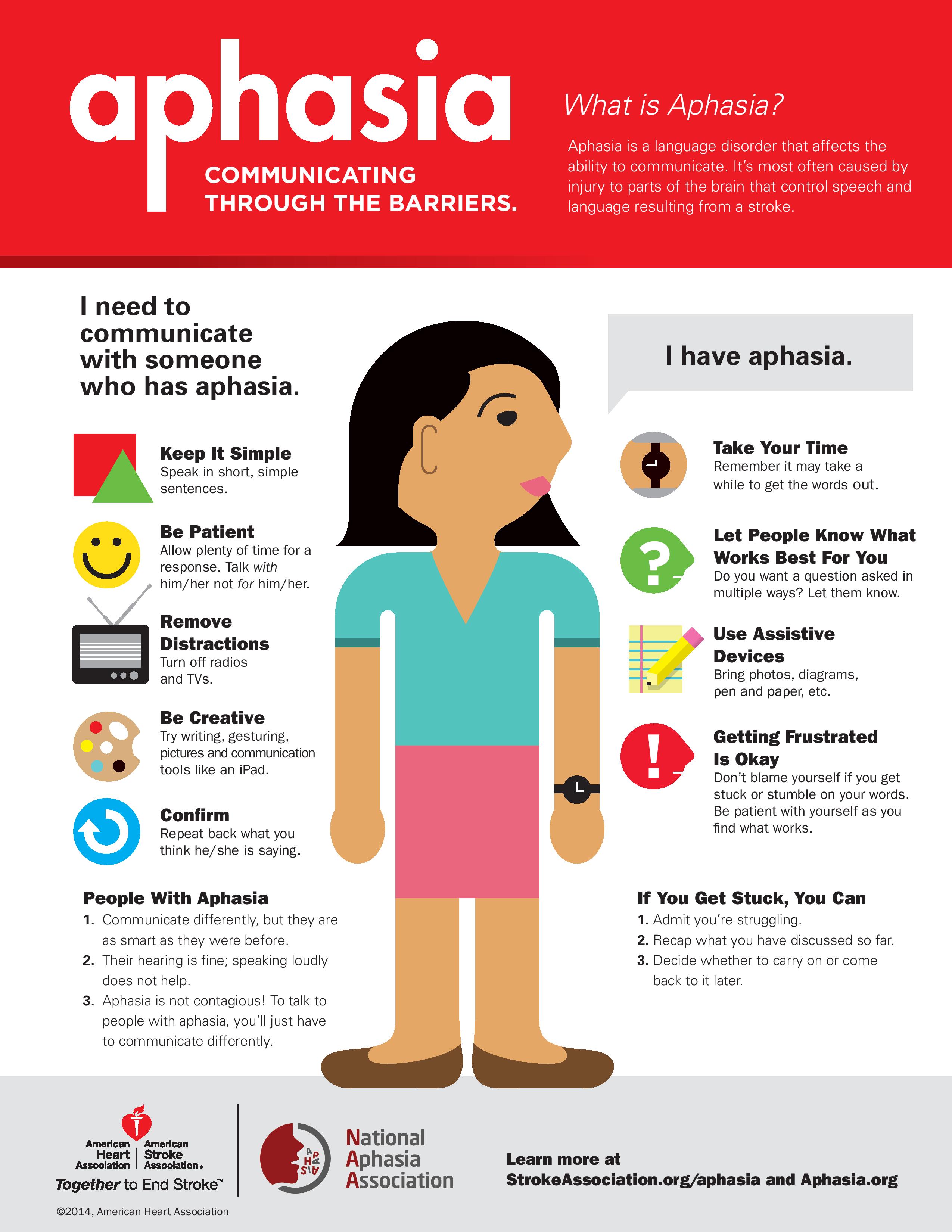The main sign of aphasia is difficulty with communication, although the condition affects everyone differently.
In cases where aphasia has been caused by a sudden brain injury, such as a stroke or a severe head injury, symptoms will usually develop straight after the injury.
In cases where there is gradual damage to the brain as a result of a condition that gets worse over time, such as dementia or a brain tumour, the symptoms may develop gradually.
Expressive aphasia
Someone with expressive aphasia experiences difficulty communicating their thoughts, ideas and messages to others.
This may affect speech, writing, gestures or drawing, and causes problems with everyday tasks such as using the telephone, writing an email, or speaking to family and friends.
People with expressive aphasia may have some of the following signs and symptoms:
slow and halting speech
they may struggle to get certain words out, such as the names of objects, places or people
the content of their speech is stripped down to simple elements and only contains basic nouns and verbs – for example, “want drink” or “go town today”
spelling or grammatical errors
using the wrong word, such as saying “chair” instead of “table”
difficulty constructing a sentence
being able to write or speak fluently, using long sentences, but often including nonsense words or their speech lacks meaning
Receptive aphasia
A person with receptive aphasia experiences difficulty understanding things they hear or read. They may also have difficulty interpreting gestures, drawings, numbers and pictures.
This can affect everyday activities such as reading an email, managing finances, having conversations, listening to the radio, or following TV programmes.
People with receptive aphasia may have some of the following signs and symptoms:
difficulty understanding what people say
difficulty understanding written words
misinterpreting the meaning of words, gestures, pictures or drawings
giving responses that may not make sense if they’ve misunderstood questions or comments
not being aware of their difficulties with understanding
Primary progressive aphasia
This type of aphasia occurs in people with a specific type of dementia. As it’s a primary progressive condition, the symptoms get worse over time.
Usually, the first problem people with primary progressive aphasia (PPA) notice is difficulty finding the right word or remembering somebody’s name.
The problems gradually get worse and can include:
speech becoming hesitant and difficult, and making mistakes with the sounds of words or grammar
speech becomes slow with short, simple sentences
forgetting the meaning of complicated words, and later also simple ones, making it more difficult for them to understand other people
speech becomes more vague, and the person has difficulty being specific or clarifying what they’re saying
becoming less and less likely to join in with or start conversations
A person with PPA may also experience other symptoms later in their illness, including changes in their personality and behaviour, difficulties with memory and thinking similar to Alzheimer’s disease, or difficulties with movement similar to Parkinson’s disease.

